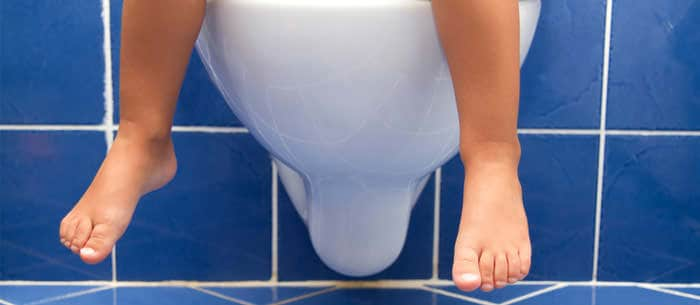Let’s face it, one of the best moments in a parent’s day is when their child finally falls asleep. Staring at that angelic little face can give you the utmost joy, especially since your home is now filled with the sweet sound of quiet! And it’s even better when you’re potty training that little darling and her or she wakes up dry after a good night’s sleep.
Here are some expert tips on ways to help your little one stay accident-free through the night.
Decide if Your Child Is Ready
As your child progresses from one developmental stage to the next, daytime potty accidents will become less and less frequent and your child will start to give you cues that they are ready to begin the process of potty training at night. If your child is beginning to wake up dry on occasion, you may be ready to take the next step. This is an exciting time for you both, but it can be challenging, too.
“Night time potty training is 95 percent different from day time training,” says Stephanie Berk, author of How To (Potty) Train Your Dragon (Child). She stresses the need for communication between parent and child. “If your child can’t understand what you mean when you use terms like dry in the morning, they’re not ready to be nighttime potty trained.”
“Most children are daytime toilet trained long before they remain dry at night,” says Nathan Blum, M.D., Section Chief, Behavioral Pediatrics, at Perelman School of Medicine at the University of Pennsylvania. “Once children are developmentally ready, rewards and other motivational strategies can be helpful for daytime toilet training, but rewards or punishments are not helpful in getting children to be dry at night. This is simply because young children do not as yet have control of their bodily functions during sleep, and will not be jarred awake by their need to urinate during the night.”
Train Your Child’s Body
If you sense that you are both ready to take on this challenge, the first step is making sure your child is kept well hydrated throughout the day. Do not give them anything to drink after dinnertime, or before heading off to bed. Also make sure your child uses the potty right before lights out. Take a few minutes to read to them, or keep them occupied in some other way while they sit on the potty, allowing for ample time to go, suggests Berk.
Right before your own bedtime at around 10 or 11 p.m., gently rouse your child into a semi-awake state, keeping the room dimly lit and then, bring them back to the potty to urinate. “It is important to let your child know you will be doing this, so as not to frighten or confuse them,” says Berk. “If your child resists, do not force or argue; rather, let them know that yes, they may not wish to use the potty right now, but possibly, their body may wish something different.” Let them maintain control, but give them a way to follow through with your request. And remember to maintain patience at all times. Never force your child, but rather use gentle words they can understand. And make sure your nanny or babysitter follows the same procedure if they will be caring for your child during nighttime hours.
Lastly, make sure an adult — either a parent or caregiver — is available to take the child to the potty at 6 or 7 a.m. the following day. Many children make it through the night dry, but need to urinate early in the morning before their household is up and running.
Stay Calm
Easier said than done! But remember, stress can have a strong effect on your child’s progress.
Many parents get frustrated with their children for having nighttime accidents, but keep in mind that these are truly accidents, not willful acts. “During the day, children are aware of what their bladder is telling them, but at night have less control over bodily functions,” says Dean Haddock, Psy.D. Haddock is a strong believer in using pull-ups or bedwetting alarms as tools to support kids in developing nighttime training awareness skills. “Most importantly, don’t push the training pace faster than the child is capable of going,” says Haddock. “And remember, stressful situations in the child’s life can cause them to regress and have more accidents.”
Know That Accidents Happen
All children will continue to occasionally wet the bed, sometimes for a year or longer, as they continue to master control over their bladders and bodies. Remember, your child is more upset by this than you are. While it is important to lavish praise upon them when they succeed, it is also important to comfort them when they don’t. Never use shame as a training technique, or react as if there is a big problem. This is important behavior for your child, and also your child’s siblings, to see and mirror.
If your child’s accidents are consistent, talk to your pediatrician to make sure there are no underlying medical issues, and also keep in mind that girls tend to train a little faster than boys. Many girls will be fully nighttime trained at around six years old, with most boys following at around age seven.
RELATED: [“Potty Training: What Not to Do“]
Appreciate This Life Stage
As your child grows, so will their motivation to wake up dry every day. No, continually washing wet sheets isn’t fun. But remember that this is one of many developmental milestones marking your child’s growth, independence and mastery of life. As frustrating as it might be at times, try to enjoy this slice of time you and your child have together. It goes by very fast.
For more advice, be sure to check out How to Potty Train: Parents Share Their Real Life Solutions.
Corey Whelan is a freelance writer in New York. Her work can be found here.
